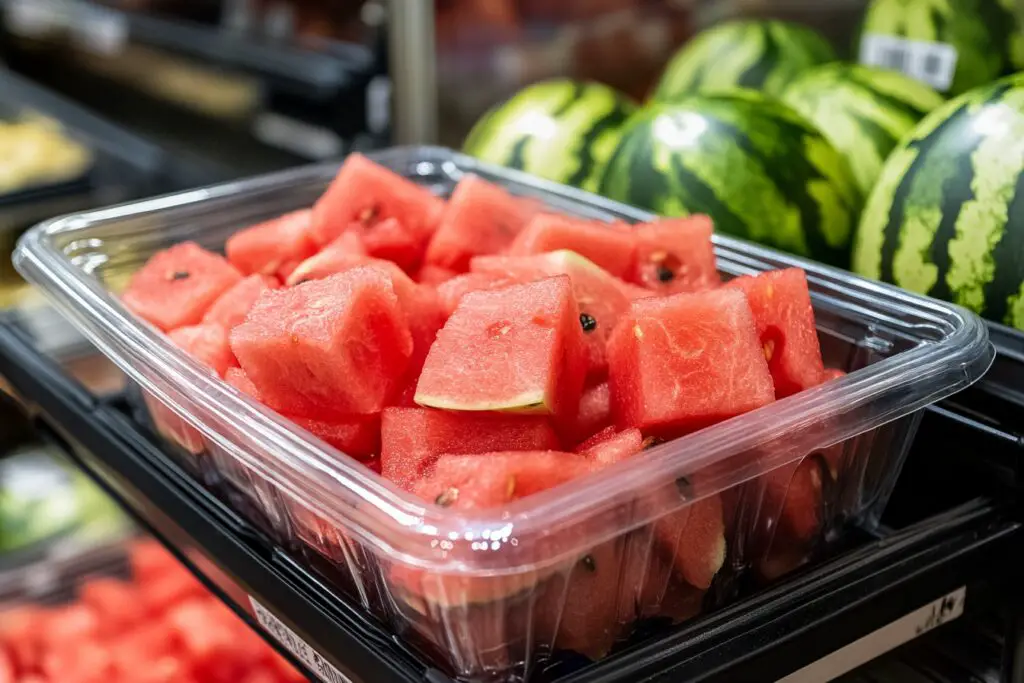Shopping smart isn’t just about finding deals – it’s about knowing which items aren’t worth your money, regardless of price. From pre-cut produce to questionable bulk buys, here’s what seasoned grocery experts recommend leaving off your shopping list.
Pre-cut fruits and vegetables at premium prices

That container of pre-cut pineapple might seem convenient, but you’re paying a significant markup – often 3-4 times the price of whole produce. Beyond the cost, pre-cut fruits and vegetables can harbor more bacteria due to increased handling and exposure.
Instead of reaching for those plastic containers, invest in basic kitchen tools and prep produce yourself. A sharp knife and cutting board will pay for themselves within weeks. Store cut produce in airtight containers – they’ll stay fresh longer than store-prepared options.
Damaged packages and dented cans
Even with tempting clearance prices, compromised packaging isn’t worth the risk. Damaged boxes often indicate exposure to moisture or pests, while dented cans – especially those with sharp edges or seam damage – can harbor dangerous bacteria.
What if you spot a great deal on slightly damaged goods? Remember that saving a few dollars isn’t worth potential food waste or safety concerns. Consider this: if moisture has breached the packaging, you might be buying stale cereal or contaminated dry goods.
Hot bar and salad bar items near closing time

Self-serve food stations might offer convenience, but timing is crucial. Items sitting at incorrect temperatures become breeding grounds for bacteria. Most stores maintain these bars for specific hours – shopping near closing time means you’re likely getting food that’s been sitting out too long.
Many stores discount these items before closing, but resist the temptation. The risk of foodborne illness outweighs any potential savings. Plan your shopping earlier in the day when fresh batches are more likely.
Non-food items from regular grocery stores
Standard supermarkets typically mark up household items significantly compared to big-box stores or online retailers. Items like cleaning supplies, personal care products, and kitchen tools often cost 20-30% more.
Save these purchases for dedicated household goods stores or bulk retailers. If you need these items during your grocery run, make note and buy them elsewhere during your next shopping trip.
Frozen items with visible frost buildup

Ice crystals on frozen foods indicate temperature fluctuations or extended storage. These items often suffer from freezer burn, affecting taste and texture. Some stores move older frozen stock to sale bins – resist buying these frost-covered items.
When selecting frozen foods, check package dates and avoid any with stiff or clumped contents. These signs suggest the item has thawed and refrozen multiple times.
Smart grocery shopping means being selective. While some premium products justify their cost, others offer poor value regardless of price. By avoiding these items, you’ll save money and ensure better quality in your cart. Remember – sometimes the best deal is walking away from a purchase entirely.

